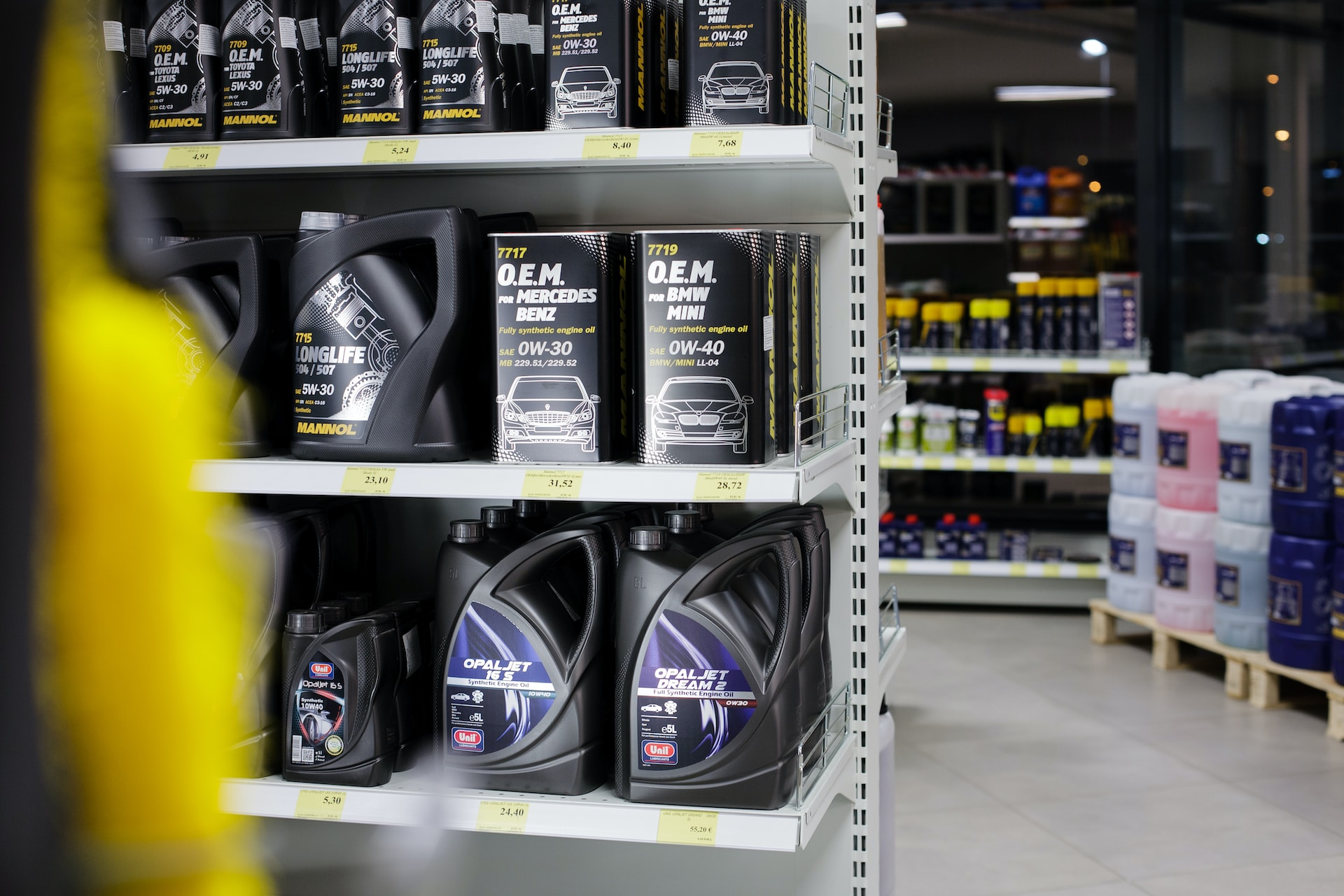An oil change is a car maintenance task that the vehicle owner should do as a routine task to keep the vehicle running smoothly. It is the necessary work to maintain the vehicle engine in good condition and for its improved lifespan.
However, there is a misconception among vehicle users that the oil should be changed every 5000 kilometers. Through this article, we will know the factors determining how long can you go without an oil change, and let’s check whether that thing is real or fake.
1. The 5000 kilometers oil change myth

One of the most common myths about changing the oil is we have to change it for every 5000 kilometers, and that is a common rule among all vehicle owners, and what type of vehicle they are using does not matter here. This rule is for the profit of quick lube shops and oil change service providers. They are all making huge profits through this misconception about the oil change.
The above rule is outdated and does not apply to current vehicles and oil. Automotive technology has developed a lot in a few years, so the quality of oils has increased. So, vehicle manufacturing companies recommend only a longer oil change interval.
2. Factors affecting oil change intervals
Oil change in vehicles depends on various factors. Let’s see the factors to understand how long you can go without an oil change.

2.1 Type of vehicle
Because we found different engine mechanisms and requirements for the different vehicles, modern vehicles have advanced engine technologies, allowing us to go longer distances with minimal oil change intervals compared to the old model vehicles.
2.2 Type of oil
The motor oil type that we use plays a vital role. There are two types of oils: conventional oil and synthetic oil. Conventional motor oil requires more frequent changes when compared to synthetic or semi-synthetic oils. Synthetic oils offer better lubrication and protection, allowing for extended change intervals. We can run vehicles for greater distances than conventional oil.
2.3 Driving habits
Driving habits can also affect oil change intervals. If the driving style or habits engage in frequent breaking or towing heavy loads, your engine will overload and generate more heat, which leads to breaking down the oil faster, requiring more frequent oil changes. So, overloading your vehicle will lead to frequent changes in the oil.
2.4. Environmental conditions
Temperature matters here. Either extreme, whether hot or cold, it can greatly impact the oil’s viscosity and break it down more quickly. If you live in an area with excessive heat or frequent changes in weather conditions, like in the desert, you may need to change your oil more frequently.
3. Recommended oil changes from the manufacturers

In this part, we have to see what the owner’s manual or vehicle manufacturer recommends, which is the most crucial factor. Modern vehicles come with owner’s manuals that will specify the recommended oil change intervals to the vehicle users. Now, follow these guidelines to ensure a healthy engine for your vehicle.
To debug the 5000 kilometers misconception, let’s see the things that some famous vehicle manufacturers recommend for regular oil change intervals:

3.1. TATA :
Tata, known for its reliability, recommends oil changes every 18,000 kilometers for many of its models, assuming the car’s oil changed in normal driving conditions.
3.2. Maruti :
Maruti is also a reliable brand mainly used by the middle-class segment and recommends oil changes for every 10000 kilometers for its vehicle models.
3.3. Toyota:
Toyota, a car known for its reliability, recommends oil changes every 18,000 kilometers for many models, like Tata, assuming normal highway driving and conditions.
3.4. Ford:
Ford uses synthetic oils in their vehicles, suggesting a fresh oil change every 12000 to 18000 kilometers.
3.5. Honda:
Honda manufacturer recommends oil changes every 12000 to 18000 kilometers for most cars and its vehicles, again under normal driving conditions. Also, most of the vehicles use conventional oils to withstand temperature changes.
3.6. Chevrolet:
Chevrolet also recommends changing the oil for every 12000 to 18000 kilometers for its vehicles, depending on the oil type and model.
3.7. BMW:
In the luxury car manufacturers segment, BMW advises oil changes at intervals of 15000 to 25,000 kilometers for many of their models. This also uses synthetic oils from the basic models of their vehicles.
It is also essential to note that these recommendations are for light vehicles running under normal driving conditions. If you frequently drive your vehicles in severe driving conditions, such as keeping overloads, applying frequent breaks, or driving in traffic, you may need to change the oil more frequently. So, conventional oil has become an old trend. Now, all are using synthetic oil only in their vehicles. Let’s look at the role of synthetic oil.
4. The invention of synthetic oil has revolutionized oil change intervals

Synthetic oils offer protection and better performance when compared to conventional oils. They have several advantages that allow us to travel longer distances with minimal oil change. We have a huge number of benefits from using synthetic oils.
4.1. Stability (Withstand frequent temperature changes):
Synthetic oils can withstand any temperature, so they maintain their viscosity and lubricating properties for a long-lasting period.
4.2. Breakdown resistance:
Synthetic oils have minimal risk of breakdown due to heat, friction, and oxidation, allowing them to last longer between the changes in the temperature.
4.3. Improved Cleaning:
Synthetic oils also have better detergent properties, which help keep the oil pan and engine clean and reduce the formation of sludge, dirt, and unwanted deposits.
4.4. Better Flow even at Low Temperatures:
Synthetic oils flow better at low temperatures, which is especially beneficial in extreme cold climates while driving in hill stations.
4.5. Changing the oil filter:
An oil filter is the most important component of an engine’s lubrication system; it removes impurities and unwanted particles from the oil. We have to note that also.
Overall, synthetic oil is the best, allowing extended oil change intervals compared to conventional oils and handling the demands of modern engine vehicles. We can be able to travel longer distances without any issues.
5. What is the Importance of Regular Maintenance?

Even though it is clear that oil change intervals have extended beyond the old 5000-kilometer misconception, it is very important not to avoid regular engine maintenance. Even with modern engines and synthetic oils, avoiding regular oil – changes for too long can lead to engine damage and costly repairs.
Regular maintenance is not just changing the oils. It includes more than that; it involves inspecting other important engine components, such as the spark plug, air filter, brakes, tires, and fluids.
In addition to that maintenance and all those things, we have to keep our eyes on the oil levels in the vehicle engine and should change the engine oils to different quality only, and that is a matter of good practice also.
Quality, in the sense, should use branded engine oils. Suppose you notice any significant drop in engine oil level or the oil appears dirty or discolored. In that case, it’s a sign that you should schedule an oil change sooner than your vehicle’s recommended oil change interval.
5.1. What happens if you drive your vehicle long distances without an oil change?

If you drive long distances without changing your oil, the oil will break down and lose its ability to lubricate and does not protect your engine. This will, of course, lead to several problems, including:
- Costly repairs on engine parts
- Engine performance will be reduced.
- In addition to the costly repairs, there will be an increased fuel consumption
- Overheats the engine.
- Finally, the engine failed.
In the worst-case scenario, you may require a complete engine replacement if you go too long without an oil change.
5.2. How do we extend the life of the oil we use, and how long can you go without an oil change?

There are a lot of things you can do to extend the life of the oil you are using in your vehicle, which includes:
- Use the correct type of oil for your car.
- Check the level of oil regularly and add if it is needed.
- Also, the oil filter should be changed regularly.
- Neglect driving in the worst conditions, like dusty or sandy conditions.
- Don’t press the accelerators and brakes suddenly.
- Warm up the vehicle’s engine before driving.
Keeping these tips in mind and following them can help you keep your car engine running smoothly and efficiently for many miles over many years.
Conclusion:

At last, we debugged that 5000 kilometers misconception with the advanced technology in the vehicles and the engine oil like synthetic oils. Modern vehicles use synthetic oils and follow manufacturer recommendations, which can cover the longer distance between oil changes and between 12000 and 18000 kilometers or even more under normal driving conditions.
When determining your oil change intervals, it is essential to consider factors like your type of vehicle, type of oil, driving habits, and environmental conditions. In addition to that, considering your vehicle manufacturer’s recommendations is the safest way to ensure your engine remains healthy and performs well.
Remember, when oil change intervals have extended, regular maintenance, including oil changes, is still most important for the longevity and reliability of metal parts in your vehicle. So, rather than following outdated misconception rules, consult your owner’s manual and consider your driving style and circumstances to make the right oil change interval for your vehicles.
Last Updated on December 9, 2023 by Sathi Chakraborty






“Informative article addressing a critical aspect of car maintenance! Understanding the timeframe for an oil change is crucial for the longevity and performance of a vehicle. This article breaks down key points, providing valuable insights for car owners. Timely oil changes contribute to a smoother ride and help avoid potential issues. #CarMaintenance #AutoCare”
Understanding the timeframe for an oil change is crucial for the longevity and performance of a vehicle. This article breaks down key points, providing valuable insights for car owners. Timely oil changes contribute to a smoother ride and help avoid potential issues.